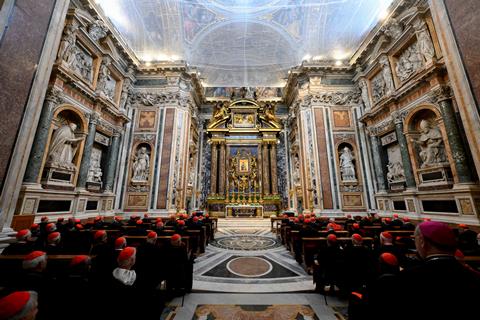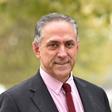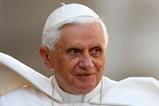As the Catholic Church prepares for its next pope, Jay Valero outlines three priorities that the Church — and the world beyond it — will need him to focus on

The recent blockbuster Conclave is beautifully filmed and a very exciting watch, despite the disappointing ending. But the main plot of it being a battle between conservatives and liberals is inaccurate. The 135 voting cardinals who will elect the next bishop of Rome will not divide into factions fighting each other, they will look for the best man to lead the Church in the 21st century. And now, thanks to Francis, this group numbers men from all corners of the world, including countries with hardly any Catholics, which will bring much needed perspectives to the process.
The tallest task
Being pope is an impossible job: he needs to be holy, a man of prayer with deep knowledge of theology and canon law, humble but long-sighted, able to address crowds while keeping his virtue, capable of walking with kings without losing the common touch. He must also be a master of international politics, a strong and inspiring leader, good at selecting and managing people in 5000 dioceses around the world.
And in this era of social media every one of his actions will be scrutinised, judged, praised and criticised. He will need an iron will to stick to his programme, and great collaborators who can advise him wisely.
The new pope will inherit the reforms started by Francis which are still a work in progress: curial reform to keep bringing the most talented people to work at the Holy See, including lay people, especially women; reform of child protection protocols so that the scourge of abuse is eliminated from the life of the Church and there is proper accountability at all levels; financial reform to follow international laws of finance and transparency.
Over the decades the papacy has become a key moral voice on global issues like war, migration, and economic inequality and that will be an important part of his mission.
My dream, however, is that the new pope takes on the following three areas as priorities.
The first is to overcome polarisation in the Catholic Church. This will involve getting Church members to listen actively to each other, fostering unity without forcing uniformity, encouraging dialogue without compromising doctrine, and creating space for diverse perspectives rooted in the one faith.
Focusing on shared foundations — scripture, the Eucharist, the creed, the sacraments, the Beatitudes, and the mission to love and serve others — the new pope should remind Catholics that despite any differences, we are each called to holiness. He specially needs to inspire young people, reconnecting each new generation to the Church.
Related to this is the unity with all other Christians. Both John Paul II and Francis spoke about their willingness to reform the papacy so that it could be such a point of unity, but were not able to make it happen. It would be wonderful if the next pope could prioritise such reform of his own role.
The second priority would be to place the family at the heart of the action of the Church everywhere. Following Francis’ document Amoris Laetitia, priority should be given to preparing young people for marriage from as early as possible, helping them to have the right dispositions as they enter marriage, and to get the help they need at the different stages to make solid and long-lasting marriages and families. From such families the Church will be renewed and vocations will come for the priesthood and the religious life.
And the third priority would be to provide whatever it takes to help lay people take on their mission as laid out in the Second Vatican Council. The synodal process which Francis initiated, for all its many positive aspects, could be diverted if it uniquely comes to mean getting lay people involved in Church institutions. A much larger field of evangelisation is lay people witnessing in the world, not just in diocesan meetings.
This enkindling of the full potential of the lay vocation is something that has only just been started and so far only in a small way. The relevant structures should be set up everywhere in the world to give the appropriate formation to as many lay people as possible, enabling them to take the message of Christ both to the peripheries, as reminded so often by Pope Francis, and to all secular environments where God is no longer welcome — universities, banks, factories, companies, law firms.
Giving formation to such a large number of people is a huge task. And the clergy should be at the service of lay people, helping them in their mission to bring God to the world.
Trust in the Holy Spirit
I feel that the Holy Spirit has given us the popes we needed. He gave us John Paul II to help the world overcome communism and to stabilise the Church following the Second Vatican Council. He gave us Benedict to make theology accessible to all, and with his books to centre the Church on Jesus Christ. Then he gave us Francis to show us that the name of God is Mercy and to remind us that God loves each one of us unconditionally, especially those in need.
My expectation is that the Holy Spirit will give us the pope we need one more time.



































No comments yet